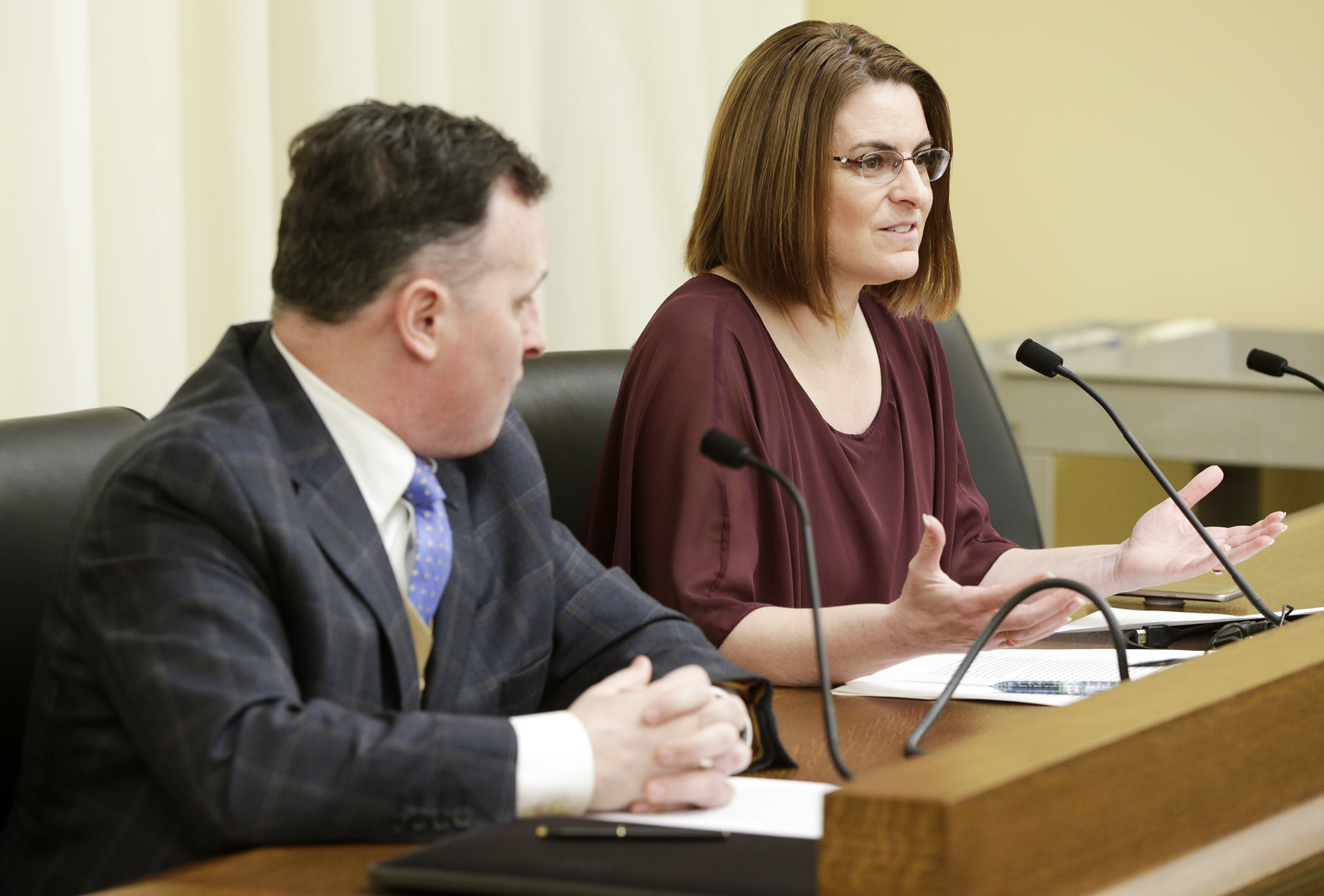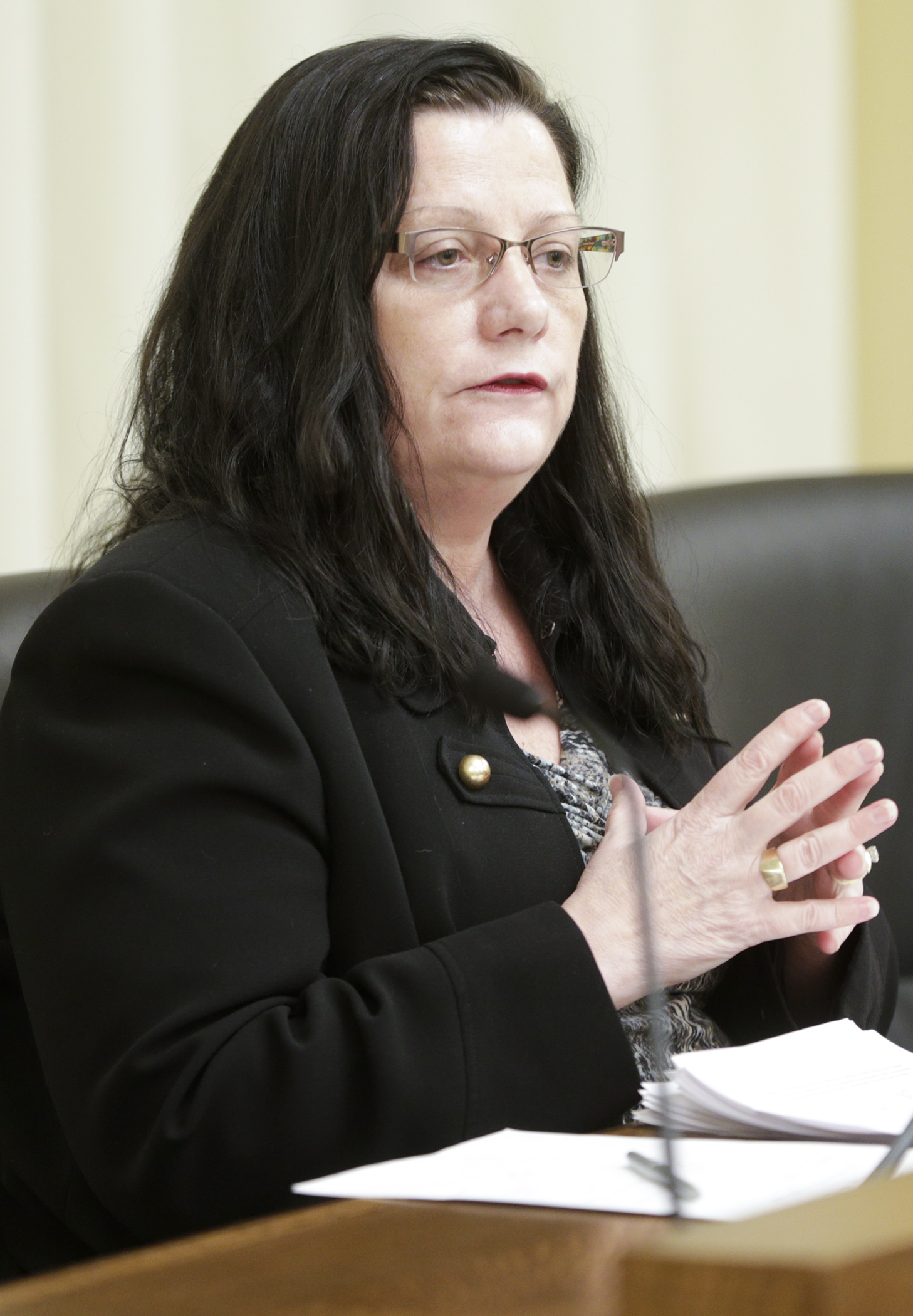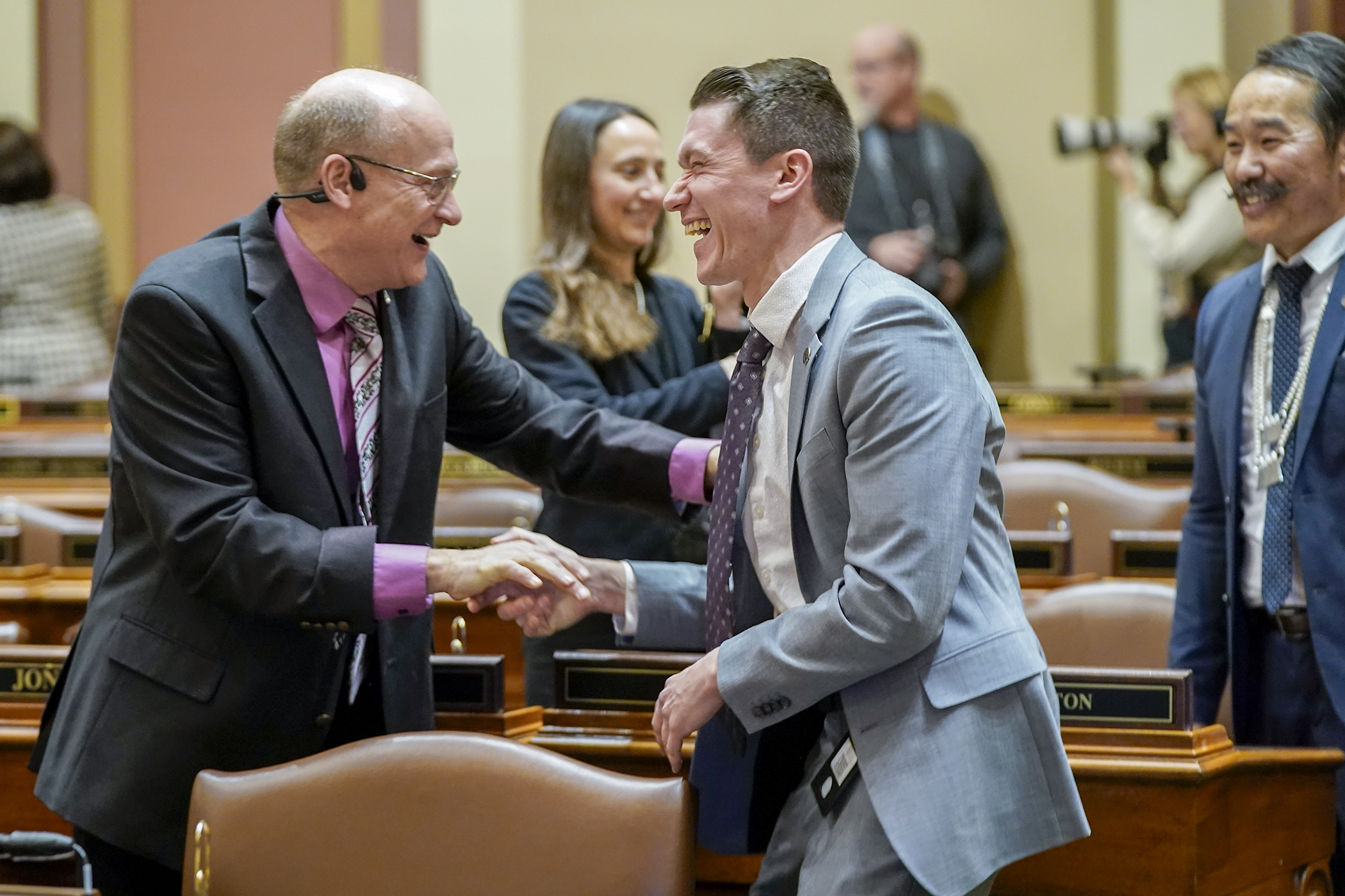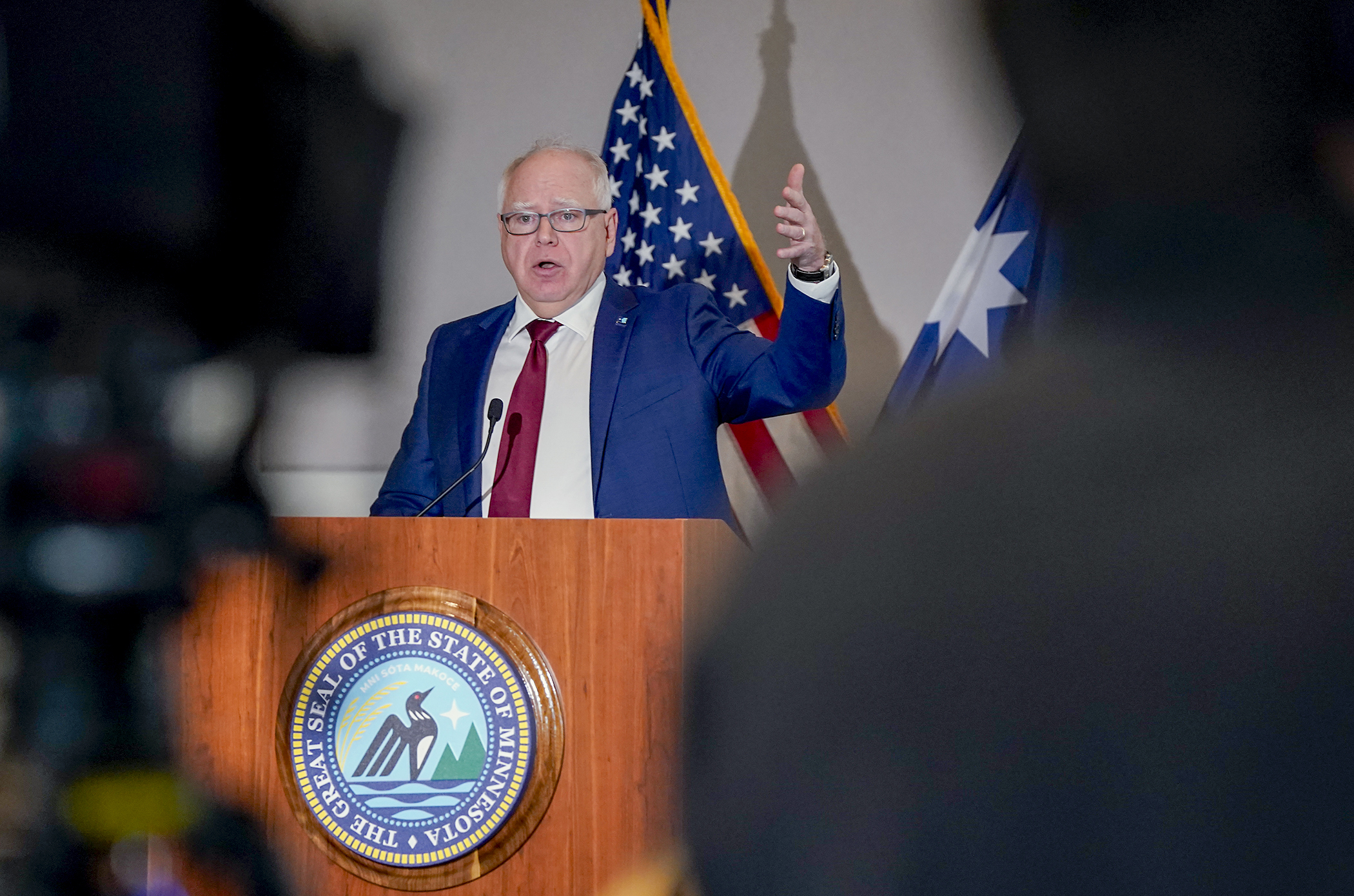Proposal aims to change House rules, start conversation about sexual harassment

Conversations about sexual harassment in the House need to happen, a pair of members say, and a bipartisan proposal hopes to start one.
Rep. Marion O'Neill (R-Maple Lake) and Rep. John Lesch (DFL-St. Paul) presented their proposal to amend the Permanent Rules of the House to the House Subcommittee on Workplace Safety and Respect on Monday. No action was taken.
The proposal aims to address how sexual harassment allegations are handled in the House in the wake of the #MeToo movement and the resignation of former Rep. Tony Cornish. O’Neill and Lesch said the proposal isn’t perfect, but is intended to start a conversation that “needs to happen.”
Specifically, the proposal would expedite the investigation process when an allegation of sexual harassment involving a member is reported, either by another member, the public, a lobbyist or an executive branch official. Lesch said the timeline laid out in the proposal would help make sure the allegation doesn’t get stuck in the House Ethics Committee.
The proposal would require written complaints be referred to the ethics committee within seven days of being presented to the House majority and minority leaders. The committee would then have to hold a nonpublic probable cause hearing within 30 days of receiving the complaint. That hearing would help keep the identity of the accuser private, the proposal’s sponsors say.
If the ethics committee finds probable cause exists, it “must” hold a public hearing within 60 days. Then, within 90 days of receiving the complaint, the committee must report recommended actions.
The proposal would also require the committee to get an investigatory report from outside counsel before any probable cause hearing.
Subcommittee members raised questions about some of the language in the proposal. Among them: What constitutes probable cause; privacy of the accuser; due process for everyone involved; and requiring the complaint be written, which could prevent someone from coming forward.
Lesch and O’Neill said they expect the proposal will be vetted by the subcommittee and hopefully something better will come from that process. They also encouraged other lawmakers to come forward with their ideas to make the proposal better.
An expert weighs in
Sheila Engelmeier, an attorney and expert on harassment policies and procedures, testified about her concerns with the formality of the O’Neill and Lesch’s proposal, and provided some suggestions for the subcommittee as it moves forward.
 Attorney Sheila Engelmeier provides testimony on harassment policies and procedures before the House Subcommittee on Workplace Safety and Respect March 5. Photo by Paul Battaglia
Attorney Sheila Engelmeier provides testimony on harassment policies and procedures before the House Subcommittee on Workplace Safety and Respect March 5. Photo by Paul BattagliaChanging House culture to create a workplace where sexual harassment can’t exist should be a goal of the subcommittee’s work this session, Engelmeier said. She suggested lawmakers formalize their commitment – perhaps with a pledge – to create an environment where they won’t act disrespectfully and will call out anyone who does.
In terms of the proposal, Engelmeier thinks a less formal process is best because it will make it easier for people to come forward and report an incident of sexual harassment, noting most people are reluctant to do so. She said anonymous tip lines have been successful in the private sector if they’re followed by the right investigation.
Engelmeier also mentioned the need for accountability elsewhere — such as state law. She said the courts have narrowed the definition of harassment in Minnesota law so now “you almost have to be raped to qualify as a sexual harassment victim.”
It’s worth noting that the subcommittee is tasked with considering changes within the House, not the legal system as a whole. Engelmeier suggested the Legislature take action on this by reaffirming the definition of sexual harassment that’s outlined in state law.
Related Articles
Search Session Daily
Advanced Search OptionsPriority Dailies
Full House convenes for first time in 2025, elects Demuth speaker
By Tim Walker DFL, Republicans convene with a quorum for the first time in 2025 session after agreeing to a power-sharing deal.
DFL, Republicans convene with a quorum for the first time in 2025 session after agreeing to a power-sharing deal.
Walz proposes slimmed-down 2026-27 state budget, sales tax changes
By Tim Walker This is an odd-numbered year, and so the Legislature is constitutionally required to craft a budget to fund the state government for the next two fiscal years.
Gov. Tim Walz...
This is an odd-numbered year, and so the Legislature is constitutionally required to craft a budget to fund the state government for the next two fiscal years.
Gov. Tim Walz...